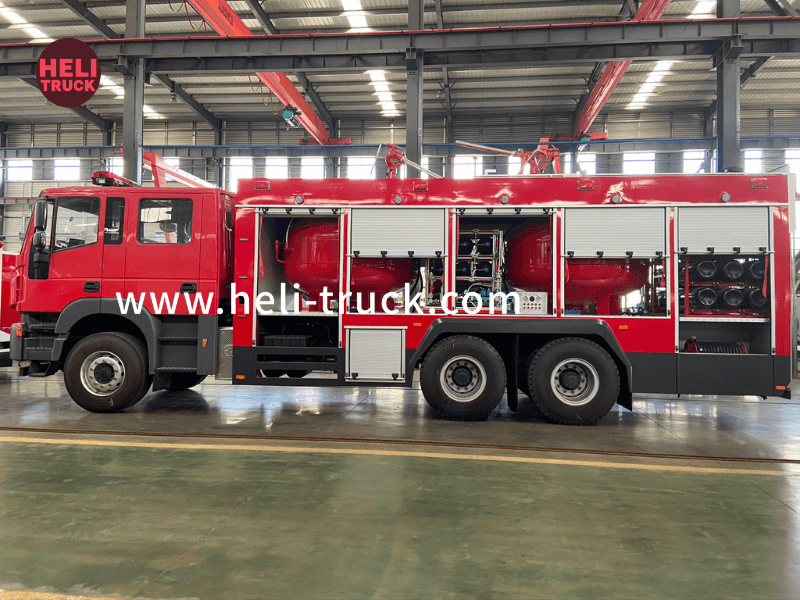Tobiasen
0 Course Enrolled • 0 Course CompletedBiography
The Weight of Garbage Compactor Trucks A Comprehensive Analysis
Introduction
Garbage compactor trucks play a crucial role in waste management systems around the world. These specialized vehicles are designed to collect, compact, and transport large volumes of solid waste efficiently. One important aspect of garbage compactor trucks that often goes unnoticed is their weight. The weight of these trucks is a critical factor that impacts their performance, fuel efficiency, and overall effectiveness in waste collection operations. In this article, we will delve deep into the world of garbage compactor truck weight, exploring the various factors that influence it and its significance in the waste management industry.
Understanding Garbage Compactor Trucks
Before we discuss the weight of garbage compactor trucks, it is essential to have a basic understanding of how these vehicles operate. Garbage compactor trucks are equipped with a compactor mechanism that compresses the collected waste to reduce its volume. This compaction process allows the trucks to carry larger quantities of waste without needing to make frequent trips to disposal sites. The compacted waste is stored in a sealed container within the truck, preventing odors and leakages during transportation.
Garbage compactor trucks come in various sizes and configurations, ranging from small rear-loading vehicles used for residential waste collection to large front-loading trucks employed for commercial and industrial waste management. The capacity of a compactor truck is typically measured in cubic yards or cubic meters, indicating the volume of waste it can hold after compaction.
Factors Affecting Garbage Compactor Truck Weight
The weight of a garbage compactor truck is influenced by several factors, each playing a significant role in determining the total weight of the vehicle. heli truck of the key factors affecting the weight of compactor trucks include:
1. Chassis Type: The chassis of a garbage compactor truck forms the structural framework that supports the compaction mechanism and waste container. The type and material of the chassis can impact the overall weight of the truck. Trucks with heavy-duty chassis made of steel are generally heavier than those with lighter materials such as aluminum.
2. Compactor Mechanism: The compactor mechanism of a garbage truck consists of hydraulic components that facilitate the compression of waste. The weight of the compactor system, including the hydraulic cylinders, pumps, and controls, adds to the total weight of the truck.
3. Waste Container: The waste container of a compactor truck is where the compacted waste is stored during transportation. The size and material of the container can affect the weight of the truck, with larger containers capable of holding more waste but also adding to the overall weight of the vehicle.
4. Engine and Fuel Tank: The engine and fuel tank of a garbage compactor truck contribute to its weight. Trucks with larger engines and fuel tanks designed for heavy-duty operations may be heavier than those with smaller, more fuel-efficient systems.
5. Payload Capacity: The payload capacity of a garbage compactor truck refers to the maximum weight of waste it can carry. The design of the truck, including its suspension system, axles, and tires, is engineered to support the payload without compromising safety or performance.
Significance of Garbage Compactor Truck Weight
The weight of garbage compactor trucks plays a crucial role in determining their operational efficiency, safety, and environmental impact. Understanding the significance of truck weight is essential for waste management companies, municipalities, and operators involved in waste collection and disposal. Some of the key aspects highlighting the importance of garbage compactor truck weight are:
1. Operational Efficiency: The weight of a compactor truck affects its maneuverability, acceleration, braking, and overall performance on the road. Heavier trucks may require more powerful engines and larger braking systems to operate efficiently, while lighter trucks can offer better fuel economy and handling characteristics.

2. Vehicle Stability: The weight distribution of a garbage compactor truck influences its stability and handling during operation. Properly balanced weight distribution ensures that the truck remains stable when loading, compacting, and transporting waste, reducing the risk of rollovers or accidents.
3. Legal Compliance: The weight of commercial vehicles, including garbage compactor trucks, is subject to regulations and weight limits imposed by transportation authorities. Exceeding these weight limits can result in fines, penalties, and safety violations, emphasizing the importance of monitoring and managing truck weight.
4. Environmental Impact: The weight of garbage compactor trucks affects their fuel consumption and emissions output. Heavier trucks tend to consume more fuel and produce higher levels of greenhouse gas emissions, contributing to environmental pollution and climate change. By optimizing truck weight and efficiency, waste management operations can reduce their carbon footprint and environmental impact.
5. Structural Integrity: The weight of a garbage compactor truck influences the wear and tear on its components, including the chassis, suspension, and braking systems. Overloading a truck beyond its weight capacity can lead to structural damage, mechanical failures, and increased maintenance costs, highlighting the importance of adhering to weight limits.
Conclusion
In conclusion, the weight of garbage compactor trucks is a critical factor that influences their performance, safety, and environmental impact. By understanding the various factors that affect truck weight, waste management companies can optimize their operations, improve efficiency, and comply with regulations. Monitoring and managing garbage compactor truck weight is essential for ensuring operational effectiveness, reducing fuel consumption, and mitigating environmental harm. As the demand for sustainable waste management practices grows, the weight of compactor trucks will continue to play a key role in shaping the future of the industry.
